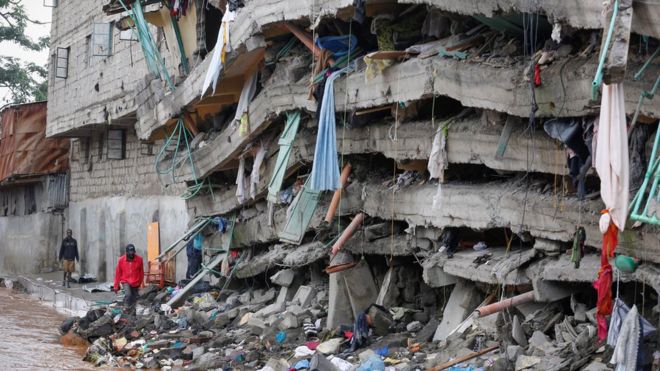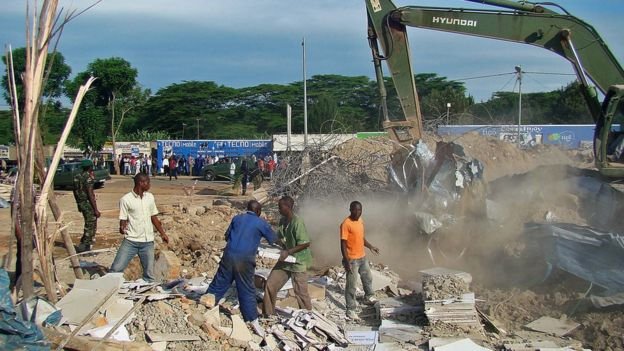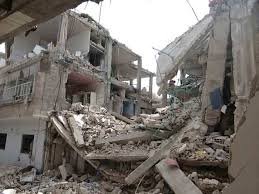FIVE REASONS WHY BUILDINGS COLLAPSE.

Especially in Africa.
After a building collapsed in Kenya killing at least 33 people, experts look at some reasons why such incidents occur in Africa.
The six-storey residence in Kenya's capital Nairobi came down in heavy rain, with more than 80 people still missing.
While investigations are still underway into the cause of this collapse, we look at some common problems.
- THE FOUNDATION ARE TOO WEEK
Adequate foundations can be costly.
They can cost up to half the price of a building, observes professor of civil engineering Anthony Ede at Covenant University in Ota, Nigeria.
He says two things should be considered when you are building the foundations - the solidity of the soil and the heaviness of the building and its contents.
In the commercial capital of his country, Lagos, the swampy ground requires strong foundations. Far stronger than solid ground.
But he says developers save money that should be spent on foundations when building on the city's swampy ground and many buildings have collapsed in Lagos as a result.
Even on solid ground, foundations need to be strong enough for the load.
Inadequate foundations for a four-storey building was one of three reasons given by investigators for a building collapsing in northern Rwanda in 2013 and killing six people.

THE BUILDING MATERIALS AREN'T STRONG ENOUGH
Materials that just aren't strong enough to withhold the load are used, says Hermogene Nsengimana from the African Organization for Standardisation, whose organisation met last month in Nairobi to discuss why so many African buildings collapse.
He suggests there is a market for counterfeit materials - going as far as to say that sometimes scrap metal is used instead of steel.

When a six-storey building in Uganda's capital Kampala collapsed in April, the director of the city authority suggested it had been constructed with counterfeit materials, reports Ugo news site.
Mr Nsengimana says there are even cases of counterfeiters faking authentification certificates.
But he suggests contractors also knowingly use the incorrect materials to cut costs.
So they may use concrete intended to bear the load of a one-storey building in a four-storey building.
Mr Ede adds that this is something regulators are not policing.
WORKERS MAKES MISTAKES
Even when workers are given the right materials to make the concrete, they mix them incorrectly, says Mr Ede.
This results in concrete which is not of the sufficient strength to hold the load.
He accuses developers of cutting costs by employing unskilled workers who are cheaper than trained builders.
"You find bricklayers and even technicians calling themselves engineers," cautions the president of the Nigerian Institution of Structural Engineers Oreoluwa Fadayomi in Nigeria's The Punch news site.
To those who want to save money on professionals, he advises: "One
should not be penny wise and pound foolish".
THE LOAD IS HEAVIER THAN EXPECTED
Mr Ede says a building collapses when the load is beyond the strength of the building.
He gives the example of asking a baby to carry a heavy box: "The baby will not be able to withhold the strain."

Even if the foundations and the materials are strong enough for what they were originally built for, that purpose may change.
THE STRENGTH ISN'T TESTED
At all points of construction the strength of the building should be tested.